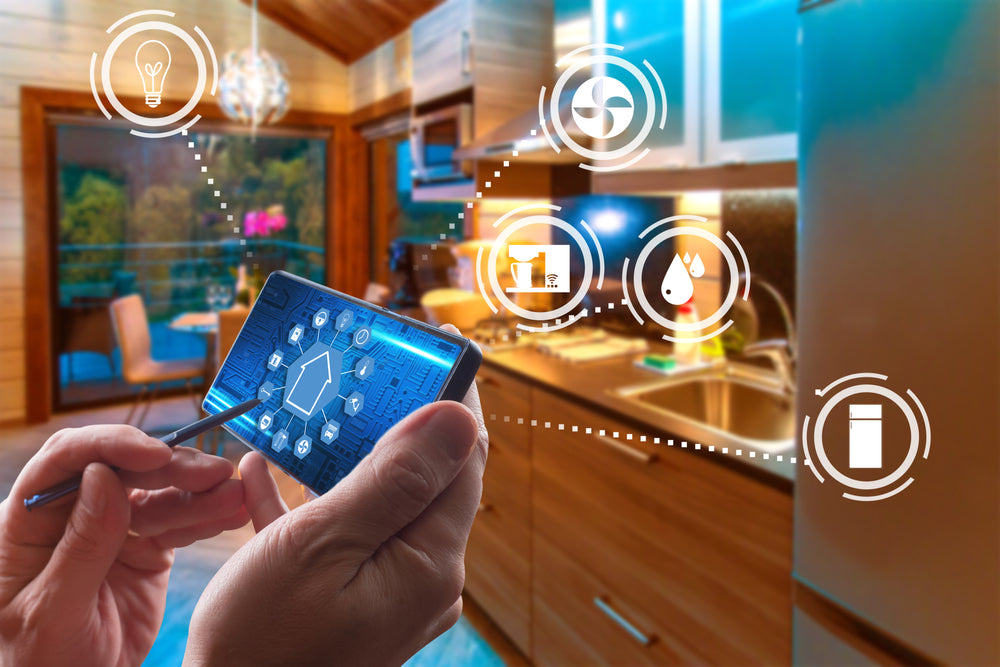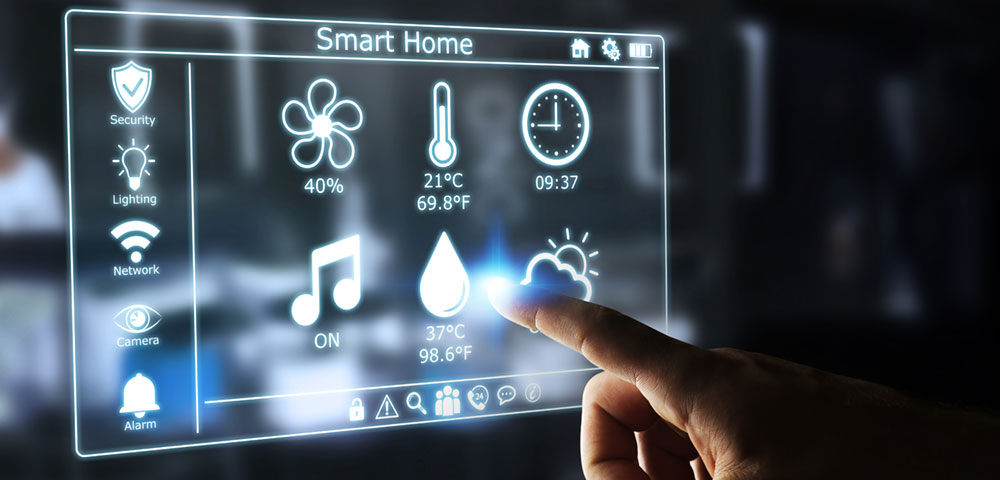
Wind Energy's Role in Modern Smart Homes for Sustainability
Share
As the world steadily transitions towards a more sustainable future, the integration of renewable energy sources in everyday life becomes ever more crucial. Thanks to advancements in technology, one of these sources, wind energy, now has promising applications in the context of smart homes.
This article explores how wind energy is reshaping the concept of sustainable living in smart homes, combining environmental concern with cutting-edge technology to deliver energy-efficient solutions.

Understanding Wind Energy
Wind energy is the process of harnessing the power of wind to produce electricity. Factors such as wind speed, air density, and turbine efficiency play crucial roles in its effectiveness. With the global push towards renewable resources, wind farms are becoming more prevalent. But how feasible is it to incorporate this power source on a smaller scale, such as in a residential setting?
Integrating Wind Energy into Smart Homes
There's a growing trend of integrating wind energy into smart home systems. By doing so, homeowners can benefit from reduced energy bills and a decreased carbon footprint. Leveraging modern technology, smart homes can efficiently manage and optimize energy consumption.
For more insights into sustainable smart home solutions, explore <a href="https://iottechnologies.io/blogs/our-latest-posts/how-to-integrate-renewable-energy-into-smart-homes">renewable energy integration</a> tips on smart home technologies.
Benefits of Wind Energy in Smart Homes
The benefits of utilizing wind energy in smart homes are numerous. First, it assures energy self-sufficiency. Wind-generated power can significantly complement solar energy, especially in regions with less sun exposure. Second, the reduction in utility bills is notable, contributing to a more economical household.
Moreover, using wind power aligns impeccably with sustainable living principles. Eco-conscious homeowners can reduce their reliance on fossil fuels, contributing positively to environmental conservation. Theres also an element of technological pride. Modern households equipped with such renewable systems are setting examples and paving the way for green technology adoption.
Challenges and Considerations
However, the adoption of wind energy also comes with challenges. The initial setup, which includes purchasing and installing necessary devices, can be costly. Not every geographic location is ideal for wind turbine installation adequate wind speed is a prerequisite for optimal efficiency. Maintenance and noise concerns are also considerations for prospective users.
For those wanting to delve deeper into home energy solutions, resources such as <a href="https://elemental.green/10-amazing-products-for-eco-friendly-home-automation/">eco-friendly home automation</a> might be beneficial.
Innovations in Wind Energy
Exciting innovations are propelling the practicality of wind energy in smart homes forward. Small-scale wind turbines are becoming increasingly efficient and aesthetically pleasing, making them suitable for residential areas. Furthermore, smart technology facilitates seamless integration, allowing these systems to communicate with smart home interfaces for optimal energy management.
Conclusion
Integrating wind energy into smart homes marks a significant advancement in achieving sustainable living. While challenges exist, technological progress and growing environmental awareness are driving the widespread adoption of wind power in the domestic sphere.
For those interested in further exploring the benefits of wind and other green technologies, a great starting point is the blog <a href="https://www.synergyhomesfl.com/blog/green-home-technology-for-sustainable-living/">Green Home Technology</a>.

FAQ Section
1. What are the initial costs of setting up wind energy for my home?
The initial costs include purchasing and installation. Over time, energy savings could offset these expenses, but initial investments can be substantial.
2. Can all homes support a wind turbine?
Not necessarily. The suitability of a property for wind energy depends on location and wind conditions, among other factors.
3. How does wind energy compare to solar energy for homes?
Both have unique benefits and can complement each other well. Solar energy is more predictable in certain climates, whereas wind can be advantageous in others. When combined, they can provide a more balanced energy solution.
